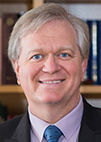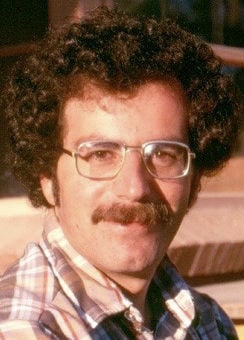Nobel-Prize winning astronomer Brian Schmidt will give a public talk on “The State of the Universe” on April 3, as part of the 30th anniversary of Steward Observatory’s Marc Aaronson Prize and lecture series.
It is named for a promising mid-career astronomer at the University of Arizona who was killed in an accident on Kitt Peak in 1987, while observing at the Mayall Telescope.
Schmidt, a University of Arizona graduate, was awarded the Aaronson Prize in 2005.
Schmidt led a team that used measurements of supernovae to discover that the expansion of the universe was accelerating.
That discovery, published in 1998, led to a Nobel Prize in physics in 2011. Schmidt shared the prize with teammate Adam Reiss and Saul Perlmutter, head of a competing team that published similar results.
The 30th anniversary Aaronson Symposium will bring an array of famous astronomers to Tucson, most of them winners of major prizes in astronomy.
A second Nobel Prize winner, John C. Mather, was awarded the Physics Prize in 2006 for his work on cosmic microwave background radiation — the acoustical imprint of the Big Bang.
Mather, Schmidt and 11 other Aaronson Prize winners will participate in a two-day symposium April 3 and 4.
Schmidt’s evening lecture is open to the public with a $5 admission fee.
Steward Observatory is raising money to add to the prize, given every 18 months in memory of Aaronson, an associate professor of astronomy at the UA, who had won several important astronomy prizes before his untimely death at age 36.
Aaronson and Jeremy Mould won the George Van Biesbroeck Prize in 1981. He won the Newton Lacy Pierce Prize in 1984 and the Bart J. Bok Prize in 1983.
Aaronson was passionate about astronomy, said astronomer Ed Olszewski, who came to Steward to work for Aaronson as a post-doctoral researcher.
“He worked really hard — harder than the rest of us. He always had a paper in press, a paper in preparation and research going on that would lead to the next paper,” Olszewski said.
Marc would drive me crazy. He drove everyone crazy at some level,” Olzsewski said.
“He was producing the science, fighting to make sure it was appreciated, and sharing his knowledge with other people.”
Thirty years on, Aaronson’s memory has faded in the department, said Dennis Zaritsky, deputy director of Steward Observatory.
“The majority of the people in the department never knew Marc. We want to rekindle what the prize is all about and communicate to people that it’s about Marc’s vision and energy and enthusiasm,” Zaritsky said.
Zaritsky said he took a class from Aaronson during his first year as a graduate student at the UA. “He was very inspiring, very energetic and very enthusiastic about astronomy.”
At the time, Aaronson was putting together a project to measure the expansion rate of the universe, using NASA’s Hubble Space Telescope, Zaritsky said.
No prize is being given this year because of the symposium. It is usually given out every 18 months since the first award in 1989 to Robert Kirshner.
Kirshner, currently program officer for science at the Gordon and Betty Moore Foundation, is former chair of astronomy at Harvard University.
Kirshner will speak at the symposium, as will Aaronson awardees Wendy Freedman, Vasily Belokurov, Ken Freeman, Pieter van Dokkum, Ewine van Dishoeck, Alice Shapley, J. Davy Kirkpatrick, Lyman Page, Nick Scoville and J. Anthony Tyson.







